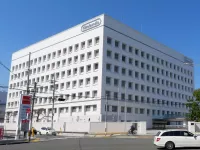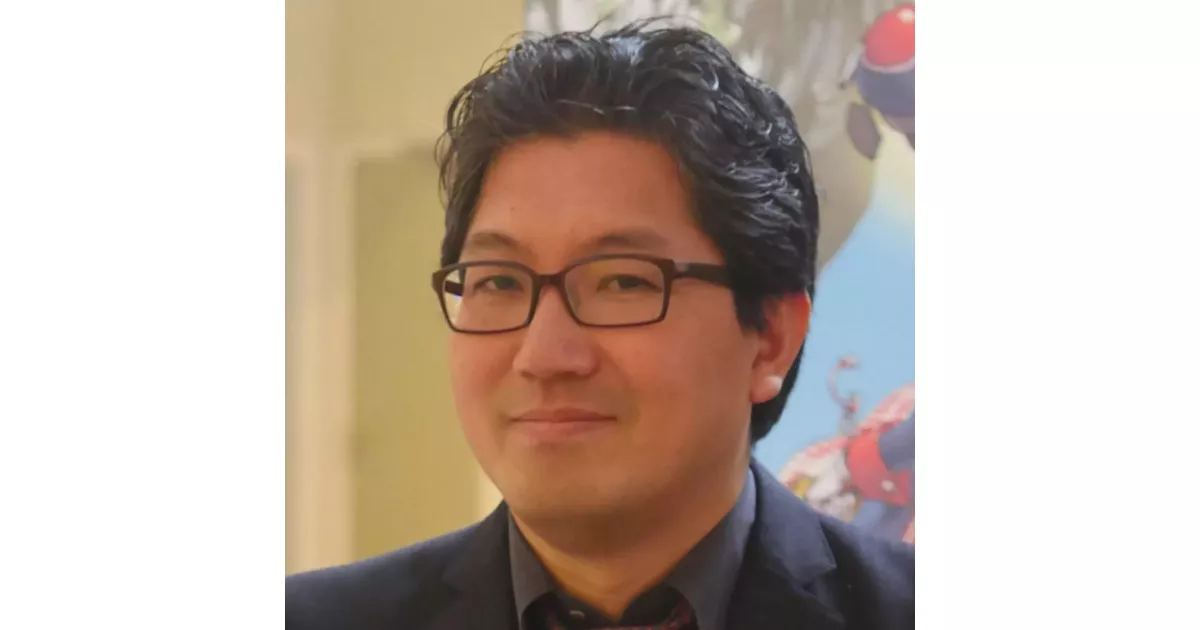Yuji Naka, also known as YU2, is a renowned figure in the video game industry, primarily recognized for his role as the co-creator of the iconic Sonic the Hedgehog franchise. His career at Sega spanned several years, during which he led the development of the Sonic series as the president of Sonic Team. He eventually left the company in 2006.
September 17, 1965: Birth of Yuji Naka
On September 17, 1965, Yuji Naka was born. He would later become a prominent figure in the video game industry, known for his work on the Sonic the Hedgehog series.
1983: Naka Applies to Sega
In 1983, Yuji Naka, after seeing a job posting for programming assistants, decided to apply to Sega, a decision that would shape his career in video game development.
April 1984: Naka Starts Working at Sega
Yuji Naka officially began his career at Sega in April 1984, starting with smaller tasks like map design and disk checking.
1984: Yuji Naka Joins Sega
Yuji Naka's journey at Sega began in 1984 when he joined the company, marking the start of his influential career in video game development.
1985: Release and Success of Girl's Garden
"Girl's Garden," the first major project by Yuji Naka and composer Hiroshi Kawaguchi, was released in 1985. The positive reception of the game brought them recognition within the company and among Japanese gamers.
1985: Release of Super Mario Bros.
The release of "Super Mario Bros." in 1985 had a significant impact on Naka. His experience playing the game sparked a desire to create a game where players could progress through levels at a faster pace, ultimately influencing the development of "Sonic the Hedgehog."
1988: Naka's Inspiration from Capcom's "Ghouls 'n Ghosts"
During the 1988 Amusement Machines Show, Naka was captivated by Capcom's "Ghouls 'n Ghosts," particularly the diagonal movement on slopes. This experience fueled his desire to recreate and innovate upon this mechanic, ultimately influencing his future work.
1989: Contribution to Phantasy Star II
Yuji Naka's contributions to the video game industry continued with his work on "Phantasy Star II" in 1989, showcasing his evolving skills and creativity.
1991: Release of Sonic the Hedgehog and Departure from Sega
The year 1991 marked both a triumph and a turning point for Naka. "Sonic the Hedgehog" was released to critical acclaim, propelling Sega's Genesis console to new heights. However, despite the game's success, Naka, feeling underappreciated, made the decision to leave Sega.
1992: Naka's Refusal and the Formation of a Japanese Development Team
Following the release of "Sonic the Hedgehog 2" in 1992, Naka declined to collaborate with the American development team for future Sonic games. This decision led to the formation of a Japan-based team specifically for Sonic development, highlighting Naka's desire for a distinct creative approach.
1992: Release of Sonic the Hedgehog 2
In 1992, Naka continued to make waves in the gaming world with the release of "Sonic the Hedgehog 2," further solidifying the Sonic franchise's place in video game history.
1994: Release of Sonic the Hedgehog 3 and Sonic & Knuckles
In 1994, under Naka's leadership, the Japanese development team released "Sonic the Hedgehog 3" and "Sonic & Knuckles." These releases were notable for their innovative use of lock-on technology, showcasing Naka's commitment to pushing technological boundaries in video game design.
1994: Release of the Sega 32X
The year 1994 saw the release of the Sega 32X, a significant moment in Sega's hardware history. It was around this time that Naka began receiving advance information about upcoming Sega hardware.
1996: Dreamcast Conception and Innovative Ideas
During the development of Sonic Adventure for the Saturn in 1996, Naka participated in the "Dream Team Meetings." These meetings revolved around brainstorming ideas for what would later become the Dreamcast. Notably, Naka suggested the name "G-Cube" and proposed a novel multimedia concept involving voice commands for television channel switching, a feature later implemented in Seaman.
1996: Release of Nights into Dreams
In 1996, Naka introduced the gaming world to "Nights into Dreams," a testament to his ability to create original and captivating gaming experiences.
1996: Sonic X-treme Cancellation
In 1996, the development of the 3D Sonic game, Sonic X-treme, faced numerous setbacks leading to its cancellation. There were reports suggesting Naka's refusal to let STI use the Nights game engine, threatening to quit if they proceeded. While this speculation was refuted, it highlighted Naka's protective stance on Sonic Team's technology and the Sonic franchise.
1996: Formation of Sonic Team and Development of "Nights into Dreams"
Sonic Team was officially established as a brand in 1996, with Naka at its helm. The team embarked on the development of "Nights into Dreams" for Sega's Saturn console, marking a shift towards a new intellectual property.
1997: Naka's Plan for a 3D Sonic Game
In 1997, Naka envisioned a 3D Sonic game, aiming to bring the iconic character to a new dimension. Despite his intentions, the challenges and delays faced during the development of "Nights into Dreams" prevented him from realizing this vision for the Saturn console.
1998: Sonic Adventure Collaboration
In 1998, Naka and Ohshima last collaborated on Sonic Adventure, a pivotal title that marked Sonic's transition to 3D platforming. The game, a critical and commercial success, solidified their reputation as leading figures in game development and left a lasting legacy on the Sonic franchise.
1998: Geist Force Incident
In 1998, before the Dreamcast's launch, Naka, along with his team, visited Sega of America. During their visit, they observed the development of Geist Force, a Dreamcast rail shooter. Naka, allegedly unbeknownst to him that some Geist Force developers understood Japanese, made comments suggesting to his team they could take parts of Geist Force for Sonic games and suggested firing most of the Geist Force team. Feeling insulted, several Geist Force developers resigned, contributing to the game's cancellation.
1998: Release of Burning Rangers and Sonic Adventure
The year 1998 was a prolific one for Naka, marked by the releases of both "Burning Rangers" and "Sonic Adventure," showcasing his versatility and influence within the industry.
1999: Chu Chu Rocket! Release
In 1999, Naka's team released Chu Chu Rocket!, an action-puzzle game and the first Dreamcast game to support online console gaming. The game was a culmination of the team's efforts to explore the Dreamcast's capabilities, paving the way for their ambitious online project, Phantasy Star Online. This marked the only game Naka directly directed at Sega, as he transitioned to a producer role afterward, overseeing Sonic Team's output.
2000: Challenge of Online Gaming in Japan
After the Japanese launch of the Dreamcast and Sonic Adventure in 2000, Sega Chairman Isao Okawa tasked Naka with developing a flagship online game for the console. Despite his team's lack of experience with online gaming, Naka accepted the challenge. Recognizing the perception of online games in Japan at the time as visually unappealing and costly due to dial-up internet fees, Naka acknowledged the significant hurdle in making online gaming popular in a nation dominated by console gamers.
2000: Sega Restructure and Naka's Leadership
As Sega underwent a significant restructuring in 2000, dissolving Sega Enterprises and transforming its studios into semi-autonomous subsidiaries, Naka prioritized preserving the Sonic Team identity. As a result, SONICTEAM, Ltd. was established, with Naka assuming the role of CEO, signifying his leadership and the team's newfound creative freedom. During this time, while developing Phantasy Star Online, Naka kept Okawa, who had fallen ill, updated on the game's progress.
2000: Launch of Phantasy Star Online
In 2000, "Phantasy Star Online" was launched, a significant milestone in online gaming that further solidified Naka's legacy as a visionary game developer.
2000: SONICTEAM, Ltd. Establishment
In 2000, as Sega underwent a major restructure, Naka spearheaded the establishment of SONICTEAM, Ltd. This strategic move ensured the preservation of the Sonic Team brand and granted the studio a degree of creative autonomy within Sega. As CEO, Naka took on a larger leadership role, overseeing all of the studio's projects and direction.
March 2001: Sega's Exit from Hardware Market and Sonic Team's Transition
March 2001 marked a turning point in Sega's history as the company decided to discontinue the Dreamcast and transition away from hardware development. Consequently, Sonic Team was reabsorbed into Sega, with Naka maintaining an executive position and overseeing Sega's overall game development output. This period highlighted Naka's adaptability as a leader, navigating his team through a significant company shift and adapting to a third-party development model.
2001: Phantasy Star Online Release
In 2001, Naka and Sonic Team released Phantasy Star Online for the Dreamcast. The game, a culmination of their efforts to pioneer online console gaming experiences, marked a significant achievement in Naka's career and showcased his ability to lead a team through uncharted territory in the gaming industry.
2001: Sega's Exit from the Console Market
The year 2001 marked a turning point for Sega as it exited the console market. Despite this shift, Naka remained a steadfast presence within the company.
2002: Clash with Sega of America President
Around late 2001 or early 2002, Naka clashed with Peter Moore, the then-president of Sega of America, over market research findings. Moore, concerned about Sega's declining reputation among teenagers, presented focus group results that Naka reportedly disputed, highlighting a potential difference in understanding the western market.
November 2004: Kumho Tyres Lotus Championship
In November 2004, Yuji Naka, an avid racer and car enthusiast, competed in round six of the Kumho Tyres Lotus Championship in Tasmania.
2004: Regret over Missed Opportunities
By 2004, after Sega's transition to third-party development, Naka expressed regret for not bringing Phantasy Star Online to the PlayStation 2. This sentiment stemmed from the success of Capcom's Monster Hunter, a game that capitalized on the PS2's large user base and online capabilities. This instance highlighted Naka's awareness of market trends and his ability to recognize missed opportunities in the ever-evolving gaming landscape.
March 16, 2006: Founding of Prope
On March 16, 2006, Naka announced his departure from Sega and the establishment of his own independent game development studio, Prope. This marked a significant turning point in his career, allowing him to explore new creative avenues beyond the Sonic franchise and take on a more hands-on development role. He also expressed regret over leaving during the development of Sonic the Hedgehog (2006) which was poorly received.
2006: Founding of Prope
In 2006, Naka embarked on a new chapter in his career by founding Prope, an independent game company that allowed him to pursue his creative vision with greater autonomy.
2006: Yuji Naka Departs from Sega
In 2006, Yuji Naka left Sega, marking the end of an era for the company and for Naka himself.
2006: Departure from Sega
In 2006, after over two decades with Sega, Naka resigned from his executive role, marking the end of an era for both him and the company. His departure signified a desire for new challenges and a shift in his career aspirations, eventually leading him to establish his own game development studio.
2011: Rodea the Sky Soldier Completion
In 2011, Naka and Prope completed development of Rodea the Sky Soldier. However, the game faced a series of delays due to publisher decisions, marking a significant challenge for Naka in bringing his vision to the market.
2012: Wii U Version Decision
In 2012, following the launch of Nintendo's Wii U console, Kadokawa Games, the publisher of Rodea the Sky Soldier, decided to develop a Wii U version based on the 3DS version. This decision further delayed the game's release, pushing it back to 2015.
November 2015: Rodea the Sky Soldier Release and Advocacy for Wii Version
After numerous delays, Rodea the Sky Soldier was released in November 2015 for the Nintendo 3DS and Wii U. Naka, however, publicly expressed his preference for the original Wii version, using his platform to advocate for players to experience his intended vision for the game.
2016: Bizkaia Award Recognition
In recognition of his contributions to the gaming industry, Naka received the Bizkaia Award at the Fun & Serious Game Festival in 2016. This award highlighted his lasting impact and influence on game development, solidifying his place as a prominent figure in the industry.
January 2018: Collaboration with Naoto Ohshima
Upon joining Square Enix in January 2018, Naka, instead of pursuing social mobile games, was encouraged to leverage the resurgence of classic action games. This led him to collaborate with Naoto Ohshima, the original designer of Sonic the Hedgehog, and Arzest, a development studio with experience in Nintendo titles. This collaboration marked their first joint effort since Sonic Adventure in 1998, bringing together two iconic figures from Sega's past for a new venture.
2018: Joining Square Enix and Formation of Balan Company
In 2018, Naka joined Square Enix, a renowned Japanese game publisher, to establish Balan Company, a new subsidiary development studio. This move marked a return to a larger company structure for Naka, albeit with a focus on fostering collaboration between internal and external talent. Naka described Balan Company as a collective of designers and artists exploring genres outside of Square Enix's usual offerings, signifying his interest in pursuing new creative avenues.
April 2021: Departure from Square Enix
In April 2021, Naka's time at Square Enix came to an end when he left the company.
December 22, 2021: Shot2048 Release
On December 22, 2021, Yuji Naka released a free mobile game called Shot2048, a game with similarities to 2048 and Chain Cube.
April 2022: Lawsuit Against Square Enix
Yuji Naka announced that he had sued Square Enix in April 2022, citing their disregard for his attempts to address Balan Wonderworld's problems.
April 2022: Elise Super Tech Competition
Yuji Naka participated in the first round of the Elise Super Tech competition at the Mobility Resort Motegi circuit in April 2022 and finished in seventh place.
July 2022: Naka Denies Involvement in Sonic X-treme Engine Controversy
In July 2022, Naka publicly denied any involvement in the decision to withhold the Nights engine during the development of Sonic X-treme. He stated that the engine, being coded in assembly, would have been incompatible with X-treme, which was being developed in C. Naka suggested that the developers may have fabricated the story to justify their inability to complete the project.
November 17, 2022: Arrest for Insider Trading
On November 17, 2022, Yuji Naka was arrested by the Tokyo District Public Prosecutors Office and charged with violating the Financial Instruments and Exchange Act of 2006 for alleged insider trading related to the game Dragon Quest Tact.
March 2023: Admission of Guilt
In March 2023, Yuji Naka admitted guilt to the insider trading charges brought against him by the Tokyo District Public Prosecutors Office.
2023: Insider Trading Conviction
In a controversial turn of events, Naka was found guilty of insider trading at Square Enix in 2023. This legal battle cast a shadow over his career and legacy within the gaming industry.
April 2024: Social Media Return and Accusations
After 16 months of silence, Yuji Naka returned to social media in April 2024 and accused Yu Miyake, Dragon Quest's executive producer, of lying during Naka's trial.
Mentioned in this timeline
PlayStation is a video game brand by Sony Interactive Entertainment...

Nintendo is a Japanese multinational video game company based in...

Sonic the Hedgehog is a media franchise created by Yuji...

Square Enix Holdings Co Ltd is a Japanese multinational conglomerate...
Japan is an East Asian island country located in the...

A car also known as an automobile is a wheeled...
Trending

24 minutes ago Civil Rights Icon Jesse Jackson Passes Away at 84: A Legacy Remembered

1 day ago Democrats and Europe grapple with Trump's impact; Newsom says Trump unified Europe.

25 minutes ago Elise Mertens faces Emma Navarro in WTA Dubai 2026; Predictions and Odds

1 day ago Iva Jovic Inspired by Djokovic, Competes in WTA Dubai, Faces Anisimova.

1 hour ago Magda Linette Advances to WTA Dubaj Round 2, Fr?ch Eliminated, Other Final Matches

1 hour ago Clara Tauson vs. Peyton Stearns: WTA Dubai 2026 Match Prediction and Preview
Popular
Randall Adam Fine is an American politician a Republican who...

Pam Bondi is an American attorney lobbyist and politician currently...

Kid Rock born Robert James Ritchie is an American musician...

Barack Obama the th U S President - was the...
The Winter Olympic Games a major international multi-sport event held...

XXXTentacion born Jahseh Dwayne Ricardo Onfroy was a controversial yet...
